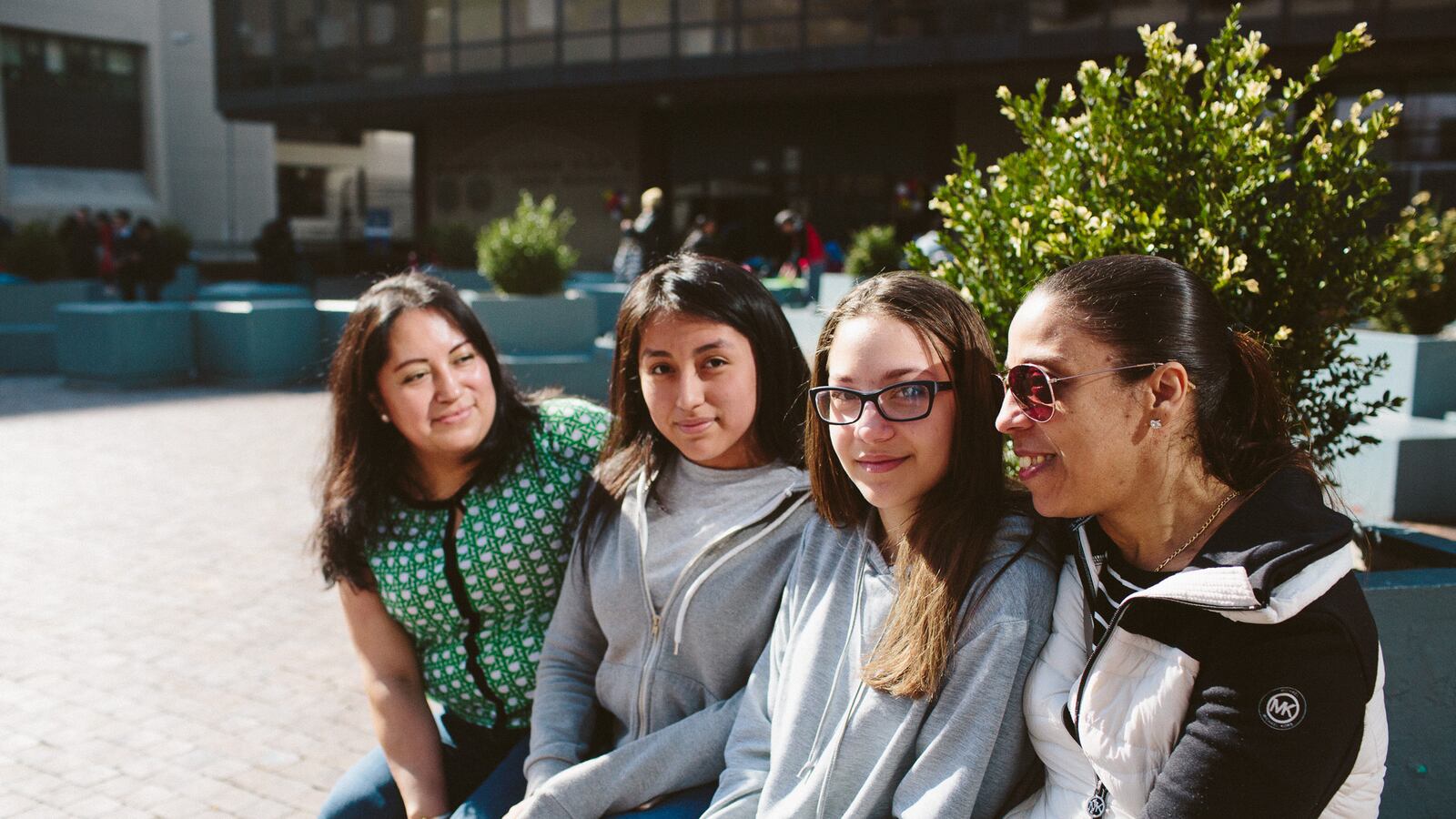Victoria Ramirez thought she had done everything right.
The eighth-grader wants to be a pediatrician, and with help from a teacher at P.S./I.S. 78, she picked schools that seemed to offer good programs in science and health for her high school application. But when students across the city received their admissions matches, she was told she would need to try again.
“I was kind of sad at first, but there are still good schools left,” she said.
When New York City students don’t get matched to a high school in the first round, or they’re unhappy with their match, they can try again in round two, though the pool of potential seats is more limited. Last weekend, schools with seats to fill set up in the Martin Luther King, Jr. campus, hoping to convince students like Ramirez that they were the right choice.
Here are a few of their stories.
Tsunami Ubiera wants to become an anesthesiologist. So after she didn’t make the cut for specialized high schools, she was on the hunt for schools that offer honors classes in the sciences.
“I want a school that is going to teach me the things that will help me to get there,” said Ubiera, an eighth grader from Inwood.
Ubiera said her guidance counselor and teachers at Inwood Academy helped her navigate the admissions process. But she felt unprepared for the specialized high school admissions test last fall.
“I heard about it this year for the first time, and I tried studying for it the best I can but I didn’t get accepted,” she said.
Ubiera’s next move: Applying to A. Philip Randolph High School in Harlem.
—Anjali Tsui
David Mizhquiri, an eighth grader from Sunset Park, was nervous as he entered the fair. But he soon worked up the courage to talk to high school students and teachers.
“It’s basically my future in my hands, so I have to speak to them about how the school is, what they can give me, and how they can prepare me for college,” he said.
Mizhquiri, who attends J.H.S. 220 John J. Pershing, didn’t receive any offers during the first round. He says he made the mistake of only applying to three schools. Although eighth graders can list up to 12 schools on their applications, Mizhquiri prioritized schools that were in his neighborhood.
At the fair, Mizhquiri sensed the magnitude of the decision he was about to make.
“If I make a wrong decision, my future could go black, it could go dark, I could lose everything,” he said. —Anjali Tsui
As she prepared her high school application, Maisa Alvarado went to 12 schools’ open houses.
So she was disappointed when it didn’t turn out the way she’d hoped: She was matched to Frederick Douglass Academy in Harlem instead of Pace, her top choice.
“We didn’t know the application process well enough,” her mother, Maira Alvarado, said through a sign-language interpreter.
But Maisa still knows what she’s looking for. “For me, the school should be close to home, or a short commute,” she said. “I also want the school to motivate me.” —Ilgin Yorulmaz
The guidance counselors at the Computer School on the Upper West Side offered plenty of help to Marco Vargas as he put together his high school application, he said.
“They told me not to put down just a couple of schools, but to list more than that,” he said. In the end, when he wasn’t matched with his first-choice school, “Even the assistant principal in my school was surprised.”
Vargas lives in the Bronx, but listed only the schools in Manhattan. It probably hurt his chances, his mother, Jodi Morales, said.
“How they match people is a mystery and not fair,” she said. —Ilgin Yorulmaz
To Tejas Wini and her family, the number and variety of schools at the fair seemed overwhelming.
Tejas trailed behind her father, Sudhakar, a banker, who had relocated his family from Mumbai to New York just a month ago. Together, they listened as teachers and cheerleaders explained why they should consider their schools.
“I need to go to a school specialized in science and math,” Wini explained. “In India, almost everyone goes to the same school from kindergarten to 12th grade. This is all very new to me.”
She took notice how friends at her current school, I.S. 237, took the news when they opened their admission letters last week.
“Some of them were very upset,” she said. “Some got in only their sixth or seventh choice.” —Ilgin Yorulmaz
This story was produced in conjunction with the Covering Education course at the Columbia University Graduate School of Journalism.

